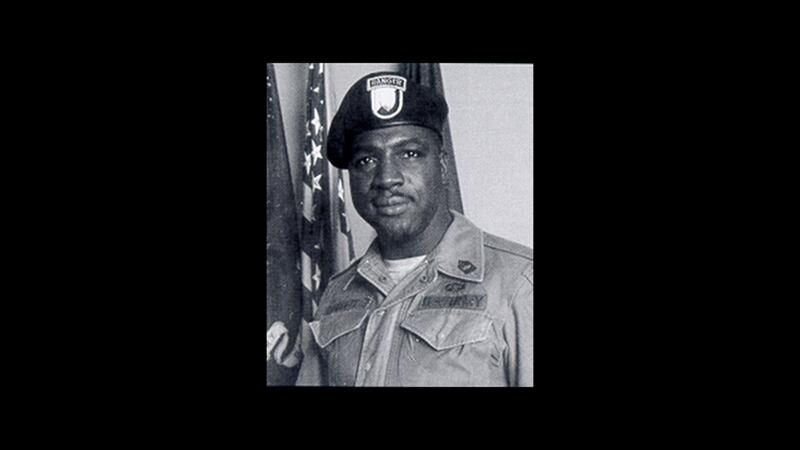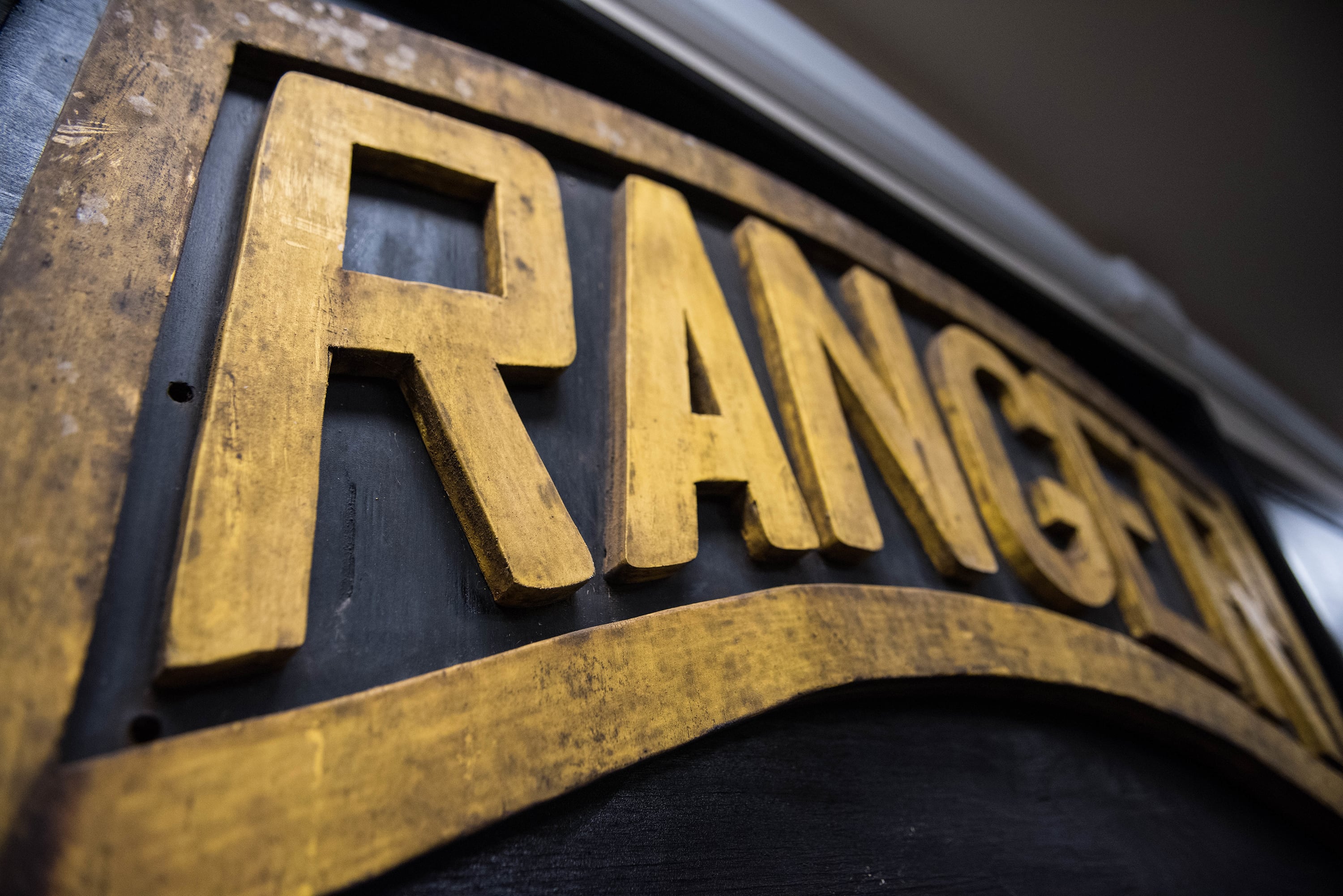COLUMBUS, Ga. — Columbus drug dealers couldn’t scare an old Army Ranger who’d done two tours of combat duty in Vietnam, so they gave up.
That’s how Milton “Davey” Lockett Jr. became a local hero at least twice, in his life:
At Fort Benning, he became the Army’s first Black Ranger instructor, in 1959.
In the Columbus neighborhood where he retired, he led a front-line attack on crime in the 1990s, helping start Carver Heights Against Drugs.
He was inducted into the Rangers’ Hall of Fame in 2001. After he died at his Schaul Street home from prostate cancer in 2018, the Columbus Police Department named its community room for him. It’s where police sometimes coordinate strategy with Neighborhood Watch leaders.
Lockett may not be as well known to outsiders, but within the area he chose to defend, he is a legend.
“Even some of the new people who have moved in, they have heard of him … from Wynnton Road to Eighth Street, and all the streets between,” said Lockett’s only son Milton Lockett III. “Everybody knew him. Everybody.”

That’s because they knew this: “If they had a problem, they knew he could help,” the son said, recalling his father would not back down against what he knew was wrong. “He would stand up and proudly show that, ‘I’m here. We can make this better if we work together.’”
That approach worked because the retired master sergeant did not pull rank to enforce his moral code, the son said. He was open, direct and respectful with others.
“Dad taught me to be honest and upright. He was always very honest with everybody. He was just one of them. He talked to people like that. He was an everyday guy.”
A HUMBLE START
Born Feb. 5, 1935, Milton Lockett Jr. was among seven children whose father worked as a concrete finisher, with a touch for smoothing and leveling the mix after it’s poured into a frame to harden.
Working at Atlanta’s expanding airport, the father later rose to supervise crews doing that work, and offered his son a job.
But Milton Lockett Jr. chose a different course, joining the Army at 17 in 1952, and finding the uniform fit his character. After two years, he came home and told the high school girlfriend he later would marry that he was going back, for six years.
For about a year he served in Korea, returning to marry Ida Clay in 1955, and moving to a post in Arkansas before the Army sent him to Fort Benning, where he signed up for Ranger School.
“He did so well in Ranger School, they offered him a job to become a Ranger instructor,” recalled his son, who was born in 1956.
He was not only an instructor, but a “Ranger Demonstrator,” joining the team that promoted the specialty by exhibiting its skills around the country, with hand-to-hand combat, ziplining, rappelling and running headlong across timbers suspended high overhead.
He was among those who performed for President John F. Kennedy in 1963. Before that, the Army sent him to a demonstration at the segregated University of Alabama, where the white Rangers afterward were treated to a picnic, his son said. The Black Rangers ate on the bus that brought them there.
He got the nickname “Davey” because they did a skit in which he played Davey Crockett, traveling the wilderness with a backpack bearing his lunch — an assortment of live snakes Rangers were taught to kill and eat, to live off the land.
Then came Vietnam.
TWO TOURS, AND HOME AGAIN
He did his first tour in 1965 and ’66. He was in a LRRP, pronounced “lurp,” a long-range reconnaissance patrol, scouting behind enemy lines.
Asked for a combat story, his son recalls one his father did not find funny, for years afterward: He and a buddy got cut off and pinned down on their way back from a mission. Under intense enemy fire, they huddled behind a fallen tree that had an upright tree beside it.
When the other Ranger unpinned a grenade and lobbed it, it hit the limbs overhead, and bounced right back at them. They braved enemy bullets to get up and run for their lives. Davey Lockett was wounded by the shrapnel.
He spent about a year back at Benning before the Army sent him back to Vietnam in 1968.
“The second tour of Vietnam, it really took something out of him,” his son said. After a few years’ more service with the Rangers here at Benning, he retired from the Army in 1972, and took a civilian job, from which he retired in 1999.
Meanwhile the house on Schaul Street became a gathering spot for neighborhood kids. Some came to get Lockett to teach them Judo and other hand-to-hand fighting skills.
Around 1991, the kids told him about a neighbor in her 80s who couldn’t leave her home, because drug dealers outside were hiding their stash in her yard.
The former Ranger didn’t walk over and order them to leave. He went over and escorted the woman to the store, and anywhere else she needed to go. He did that again and again, until the dealers moved on.
Lockett didn’t have to threaten them, his son said: “If you watched his body language and his intensity, you would get the message, ‘I’m not the one to mess with.’”
THE LAST BATTLE
After he helped form Carver Heights Against Drugs, he kept up that pressure, staking out the places dealers set up and staring them down. “You couldn’t sell drugs if someone was out in the street watching you,” his son recalled.
They couldn’t intimidate a man who’d faced death so many times before.
He faced it again, when first he was diagnosed with cancer. He got treatment, and for 11 years the cancer went into remission.
But it bounced back, eventually, and left him in hospice care, for his final days.
Still he did not fear, as death came for him on June 27, 2018, when he was 86.
His son remembers some of his father’s last words:
“I know that me being placed in hospice means that I’ve come to the end of my life,” he told his family. “I know that this is going to kill me. But it doesn’t worry me, because I’ve faced death so many times before. Maybe this time, I won’t be able to beat it.”
He left behind his memory, his honors and his influence.
“He always tried to fight things he thought were wrong,” said his son, to whom Davey Lockett remains a hero.
“I’ve always wanted to be like my father.”




